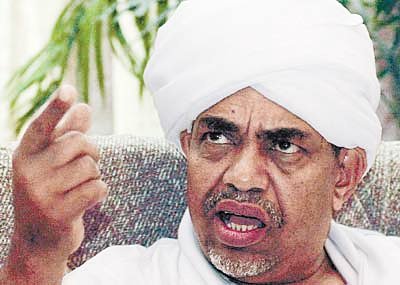UPDATES
Sudanese President’s all-out call for genocide
April 26, 2012 | Daniel Meyerowitz-Katz

Yesterday, this blog noted how serious the ongoing escalation in the conflict between Sudan and South Sudan could potentially be, pointing out some chilling sentiments coming from Sudanese President Omar Bashir — who has been flaunting an International Criminal Court indictment for Crimes Against Humanity since 2008.
MEMRI has translated a recent speech given by Bashir that was shown on Sudanese TV, in which he uses what appears to be explicitly genocidal language against the people of South Sudan and the Nuba Mountains:
Our lands in the Blue Nile Province and in South Kordofan continue to be defiled by their forces. Your role and your jurisdiction right now — we don’t want any vermin left in the Blue Nile Province. We don’t want any insects left in the Nuba Mountains. …
We want [Defence Minister] Abd al-Rahim here to deliver us the land in its entirety before the end of Autumn — and leave the land of Sudan free of any poisonous vermin, God willing.
This unequivocal incitement to ethnic cleansing continues in the video, which can be seen below.
(via The Propagandist)
The international community intervened far too late the last time violence began escalating in Sudan — with hundreds of thousands of people killed as a result. World Relief workers Don Golden and Francesco Paganini, who have been involved with relief efforts in South Sudan, have written about the importance of not allowing this to happen again — despite the tangible progress that has been made over the past few years.
The events of this past month, and the relative silence by the media on the escalating violence in the region, is a frightening reminder that turning a blind eye to the people of South Sudan could unravel years of peace work. It is then all the more important that the United Nations, African Union, local government and the multitude of international NGOs in the region recommit to furthering peace if a return to violence is to be avoided.
War will have a devastating impact on both countries — over two million lost their lives during the last civil war. To turn our attention from South Sudan now risks undermining the work of the last decade that brought it to statehood. July 9, 2011 was not the end of this region’s story, but the fragile and hopeful beginning of a new era of independence and opportunity. If we continue to stand now for peace in South Sudan, then their first chapter as a nation could read of new schools and children living past their 5th birthdays, instead of burned marketplaces and displaced refugees.
Daniel Meyerowitz-Katz
Tags: Holocaust/ War Crimes





